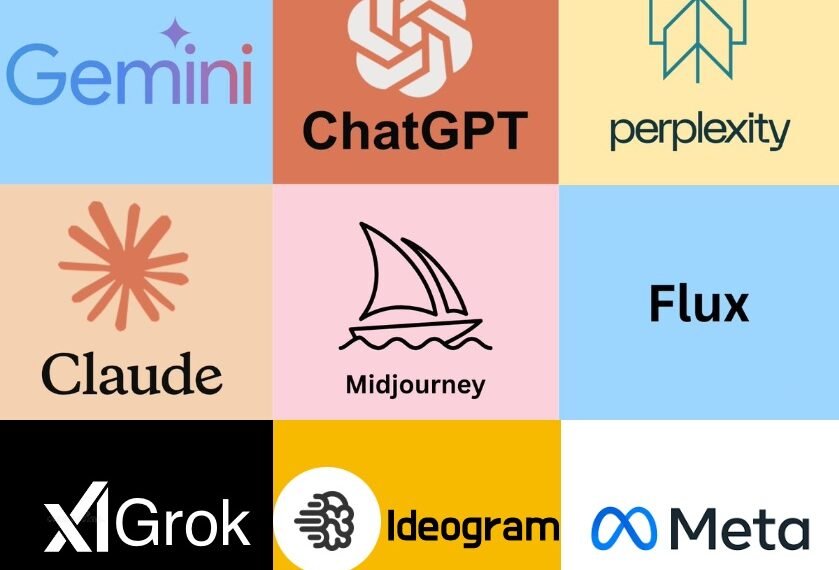“From Ashes to Insights: AI Uncovers Lost Civilizations” – Explore how AI is unlocking the secrets of ancient civilizations by analyzing charred scrolls, deciphering cryptic scripts, and translating lost languages.
BY PC Bureau
The year 2023 marked a turning point for Federica Nicolardi, a papyrologist at the University of Naples. An email arrived, bearing an image of a charred papyrus fragment from Herculaneum, a Roman city buried by the eruption of Mount Vesuvius in 79 AD. For centuries, scholars had struggled to decipher these fragile, blackened scrolls. But thanks to the Vesuvius Challenge, a groundbreaking project employing artificial intelligence (AI), Nicolardi witnessed something extraordinary: Greek letters glowing distinctly against the dark surface of the scroll. “It was a historic turning point,” she declared.
From Ashes to Insights: AI Deciphers Ancient Texts
The Vesuvius Challenge exemplifies AI’s transformative power in historical research. Neural networks are now deciphering ancient texts in Greek, Latin, and even obscure scripts. These tools analyze vast archives, filling gaps, reconstructing damaged text, and tackling languages with limited surviving records.
For instance, the Ithaca AI tool analyzes ancient inscriptions, collaborating with human experts to fill in missing characters and determine the origins of texts with unprecedented accuracy. This has led to the re-dating of Athenian decrees and the analysis of questions inscribed on tablets addressed to the Oracle of Dodona in Greece.
Unlocking Korean Chronicles: AI Translates Ancient Texts
In South Korea, Kyunghyun Cho and his team are using AI to translate the detailed daily records of 27 Korean kings, written in Hanja, an ancient script based on Chinese characters. By incorporating older Korean translations and multilingual datasets, the AI generates accurate and readable translations of these historical records, significantly reducing the time required to unlock these valuable insights.
Breathing Life into Dead Languages: AI Reconstructs Lost Texts
For languages with limited surviving texts, AI offers a lifeline. Researchers have used AI to reconstruct gaps in Mycenaean Linear B tablets, a script from the second millennium BC. This success fuels hopes of deciphering Linear A, a mysterious Minoan script that has remained elusive for centuries.
Furthermore, AI is unlocking the secrets of the Herculaneum scrolls. Brent Seales and his team at the University of Kentucky have developed “virtual unwrapping” techniques that use CT scans and algorithms to digitally flatten charred scrolls and reveal their contents. This technology has already uncovered passages from ancient texts, including a third-century AD biblical scroll from Israel.
The Vesuvius Challenge: A Crowdsourced Breakthrough
The Vesuvius Challenge, a competition launched in 2023, offered significant cash prizes to teams that could develop AI algorithms to detect ink on the Herculaneum scrolls. Over 1,000 teams participated, leading to a breakthrough by three computer science students. Their TimeSformer model, typically used for video analysis, successfully separated the depth and surface layers of the scrolls, revealing sixteen columns of readable text from a previously unknown work of Greek philosophy.
AI’s Evolution in Ancient Text Studies
AI’s application in historical research has evolved significantly. Early efforts focused on analyzing photographs of texts using convolutional neural networks (CNNs). Later, recurrent neural networks (RNNs) were employed to fill gaps in transcribed texts.
More recently, transformer-based models like Ithaca have emerged, analyzing input characteristics in parallel and capturing complex language patterns. Ithaca not only restores incomplete texts but also identifies their origins and dates, opening new avenues for historical inquiry.
Scaling Up: From Scrolls to “Invisible Libraries”
The Vesuvius Challenge marks the beginning of a new era. Seales’ team is now scanning additional scrolls and refining AI algorithms for “virtual unwrapping.” This automation could revolutionize the speed and scale of text recovery, with the 2024 challenge offering $200,000 for deciphering 90% of four scrolls.
Seales envisions reading the entire Herculaneum library, which could yield more new texts than scholars have seen in a century. This technology also holds promise for deciphering hidden texts from other sources, such as medieval book bindings and mummy wrappings.
A New Era of Discovery
AI is not just a tool; it’s a partner in unlocking humanity’s shared past. By decoding ancient scrolls, translating royal records, and tackling forgotten languages, AI is revolutionizing the way we approach history. With each discovery, the past becomes not just accessible but vibrant, reshaping how we understand the stories of those who came before us.
( The story is based on an article that appeared in December 30, 2024 issue of Nature, a weekly scientific journal founded and based in London)
The year 2023 marked a turning point for Federica Nicolardi, a papyrologist at the University of Naples. An email arrived, bearing an image of a charred papyrus fragment from Herculaneum, a Roman city buried by the eruption of Mount Vesuvius in 79 AD. For centuries, scholars had struggled to decipher these fragile, blackened scrolls. But thanks to the Vesuvius Challenge, a groundbreaking project employing artificial intelligence (AI), Nicolardi witnessed something extraordinary: Greek letters glowing distinctly against the dark surface of the scroll. “It was a historic turning point,” she declared.
From Ashes to Insights: AI Deciphers Ancient Texts
The Vesuvius Challenge exemplifies AI’s transformative power in historical research. Neural networks are now deciphering ancient texts in Greek, Latin, and even obscure scripts. These tools analyze vast archives, filling gaps, reconstructing damaged text, and tackling languages with limited surviving records.
For instance, the Ithaca AI tool analyzes ancient inscriptions, collaborating with human experts to fill in missing characters and determine the origins of texts with unprecedented accuracy. This has led to the re-dating of Athenian decrees and the analysis of questions inscribed on tablets addressed to the Oracle of Dodona in Greece.
Unlocking Korean Chronicles: AI Translates Ancient Texts
In South Korea, Kyunghyun Cho and his team are using AI to translate the detailed daily records of 27 Korean kings, written in Hanja, an ancient script based on Chinese characters. By incorporating older Korean translations and multilingual datasets, the AI generates accurate and readable translations of these historical records, significantly reducing the time required to unlock these valuable insights.
Breathing Life into Dead Languages: AI Reconstructs Lost Texts
For languages with limited surviving texts, AI offers a lifeline. Researchers have used AI to reconstruct gaps in Mycenaean Linear B tablets, a script from the second millennium BC. This success fuels hopes of deciphering Linear A, a mysterious Minoan script that has remained elusive for centuries.
Furthermore, AI is unlocking the secrets of the Herculaneum scrolls. Brent Seales and his team at the University of Kentucky have developed “virtual unwrapping” techniques that use CT scans and algorithms to digitally flatten charred scrolls and reveal their contents. This technology has already uncovered passages from ancient texts, including a third-century AD biblical scroll from Israel.
The Vesuvius Challenge: A Crowdsourced Breakthrough
The Vesuvius Challenge, a competition launched in 2023, offered significant cash prizes to teams that could develop AI algorithms to detect ink on the Herculaneum scrolls. Over 1,000 teams participated, leading to a breakthrough by three computer science students. Their TimeSformer model, typically used for video analysis, successfully separated the depth and surface layers of the scrolls, revealing sixteen columns of readable text from a previously unknown work of Greek philosophy.
AI’s Evolution in Ancient Text Studies
AI’s application in historical research has evolved significantly. Early efforts focused on analyzing photographs of texts using convolutional neural networks (CNNs). Later, recurrent neural networks (RNNs) were employed to fill gaps in transcribed texts.
More recently, transformer-based models like Ithaca have emerged, analyzing input characteristics in parallel and capturing complex language patterns. Ithaca not only restores incomplete texts but also identifies their origins and dates, opening new avenues for historical inquiry.
Scaling Up: From Scrolls to “Invisible Libraries”
The Vesuvius Challenge marks the beginning of a new era. Seales’ team is now scanning additional scrolls and refining AI algorithms for “virtual unwrapping.” This automation could revolutionize the speed and scale of text recovery, with the 2024 challenge offering $200,000 for deciphering 90% of four scrolls.
Seales envisions reading the entire Herculaneum library, which could yield more new texts than scholars have seen in a century. This technology also holds promise for deciphering hidden texts from other sources, such as medieval book bindings and mummy wrappings.
A New Era of Discovery
AI is not just a tool; it’s a partner in unlocking humanity’s shared past. By decoding ancient scrolls, translating royal records, and tackling forgotten languages, AI is revolutionizing the way we approach history. With each discovery, the past becomes not just accessible but vibrant, reshaping how we understand the stories of those who came before us.














